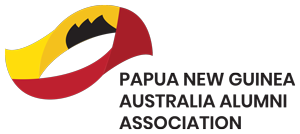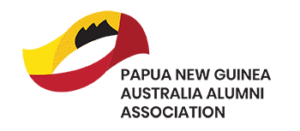Papua New Guinea’s traditional and village agricultural skills must work in with new knowledge and developments in Animal Husbandry says Lae veterinarian Nime Kapo.
“So many people who live the traditional life in our villages have much to offer, but so many of their skills are disappearing and not being handed on as generations pass”, Kapo said.
“I learned so much from my own mother, who is an illiterate subsistent housewife. She is a naturally talented agriculturalist”, he said.
“We have a lot to learn from the traditional ways in looking after livestock and gardens, but there is also much that can be improved in village productivity from recent emerging discoveries.”
Kapo, a successful ADS student who graduated from the University of Sydney in Veterinary Science in 1998, also undertook further studies in 2002 and 2003 when he gained his Masters in Tropical Veterinary Science from James Cook University.
In between he worked in Goroka and in Lae with the National Agriculture Quarantine and Inspection Authority (NAQIA), making the most of his university degrees and experience.
Kapo’s father, who was a Rural Development Officer with the department of Primary Industries, first in the Eastern and then the Western Highlands, helped develop his interest in and love of agricultural research and work.
After schooling in the Western Highlands from Years 1 to 10, Kapo then completed Years 11 and 12 at the National High School in Aiyura, before doing the UPNG Science Foundation course, with a vague idea that he would go on to study medicine or one of the sciences.
“I was born in Watabung in Daulo, and had two younger brothers, two younger sisters and an older sister. “Some of my siblings have now chosen to return to village life”, he said. It’s a tough environment, and not many opportunities in a terraneous landscape, but still a good one.”
But one of Mr Kapo’s younger brothers sought a different life path choosing instead to study economics at UPNG and is now an Economist with IRC in Mt Hagen.
“Family is important to me, especially now that I have a five-year old daughter of my own”, Kapo said. “And I love the few opportunities I get to be with my extended family; it keeps us together.”
His first experience of being away from family and friends was when he studied at the University of Sydney in the 1990s.
“I missed my family badly – it was a cultural change and a big shock. Coming from the peace, calm and beauty of Goroka to the exciting hustle and bustle of big city Sydney was a challenge.”
“I really enjoyed my time in Sydney and I learned so much – not just about vet science, but about other cultures, other people and even about myself. It was a new experience for me – to be independent in a big city, with no family network close around.”
But Kapo didn’t have time to feel sorry for himself with the demands of his studies in vet science taking up most of his time.
“And in the little spare time I had I threw myself into sport, playing Rugby League for the Sydney University team. When I came back, I kept up my interest in the sport and even represented PNG in the Kumuls team”, he added.
Being one of only a handful of Vets in Papua New Guinea means it is inappropriate to specialise in any one field or animal.
“But that only makes my job that much more interesting. There’s always a new challenge ahead of me each day I go to work.”
“I respect greatly those veterinarians who have been working for many years in our country, and those who have gone ahead of me and now passed on. They had a hard job then and it’s not a lot easier even now. There’s just not enough of us to go around for this big country.”
Looking after the Momase region means that he has little spare time. About to leave Lae for two weeks out in the remote border areas from Vanimo to Telefomin, Kapo admits his work is a challenge.
“Although we’re supported well by the government there’s never enough resources to go around and to achieve what we want to and feel that we have to. But that’s the same everywhere”, he said “whether in a developed country or in a country in transition.”
Would he change his life path now? “No – it’s definitely a challenging profession, but like most challenges we face, the rewards in terms of increased community knowledge and visible changes for the better are worth it.”
Under AusAID’s Australian Development Scholarship Program, some 130 scholars from Papua New Guinea embark on diploma, undergraduate or postgraduate studies each year in one of 19 contracted tertiary institutions across Australia. Around 50 of the successful 2007 ADS scholars live outside Port Moresby.

